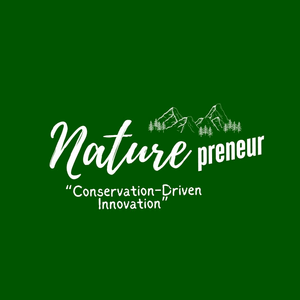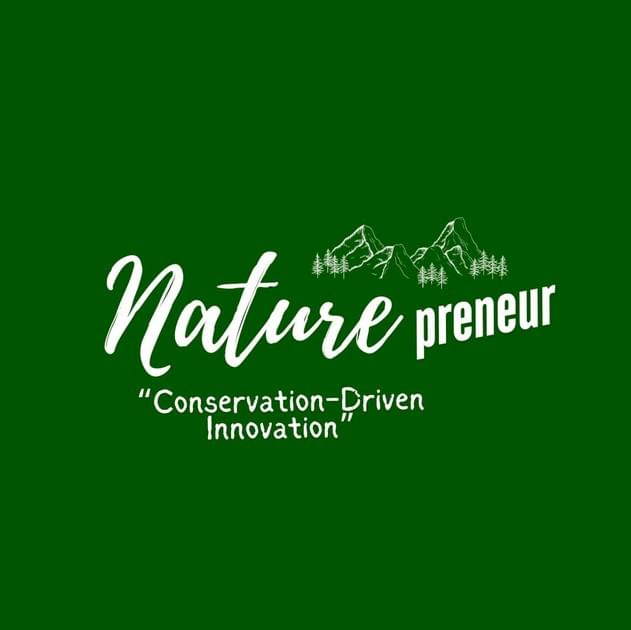

It all begins with a challenge our people are facing.
Save the Pangolins Project (STP) - We are using keychains as a tool to raise awareness and advocate against illegal wildlife trade in Lao PDR. The idea began organically when we started receiving messages from our followers on social media—questions such as,
“I saw someone selling pangolins at the market, what should I do?”,
“Is this animal illegal to trade?”, and
“Why does conserving wildlife matter?”
These messages reflected both a growing concern and a lack of accessible information among local people. Inspired by these interactions, we turned this collective curiosity into action by creating the Save the Pangolins Keychain Project
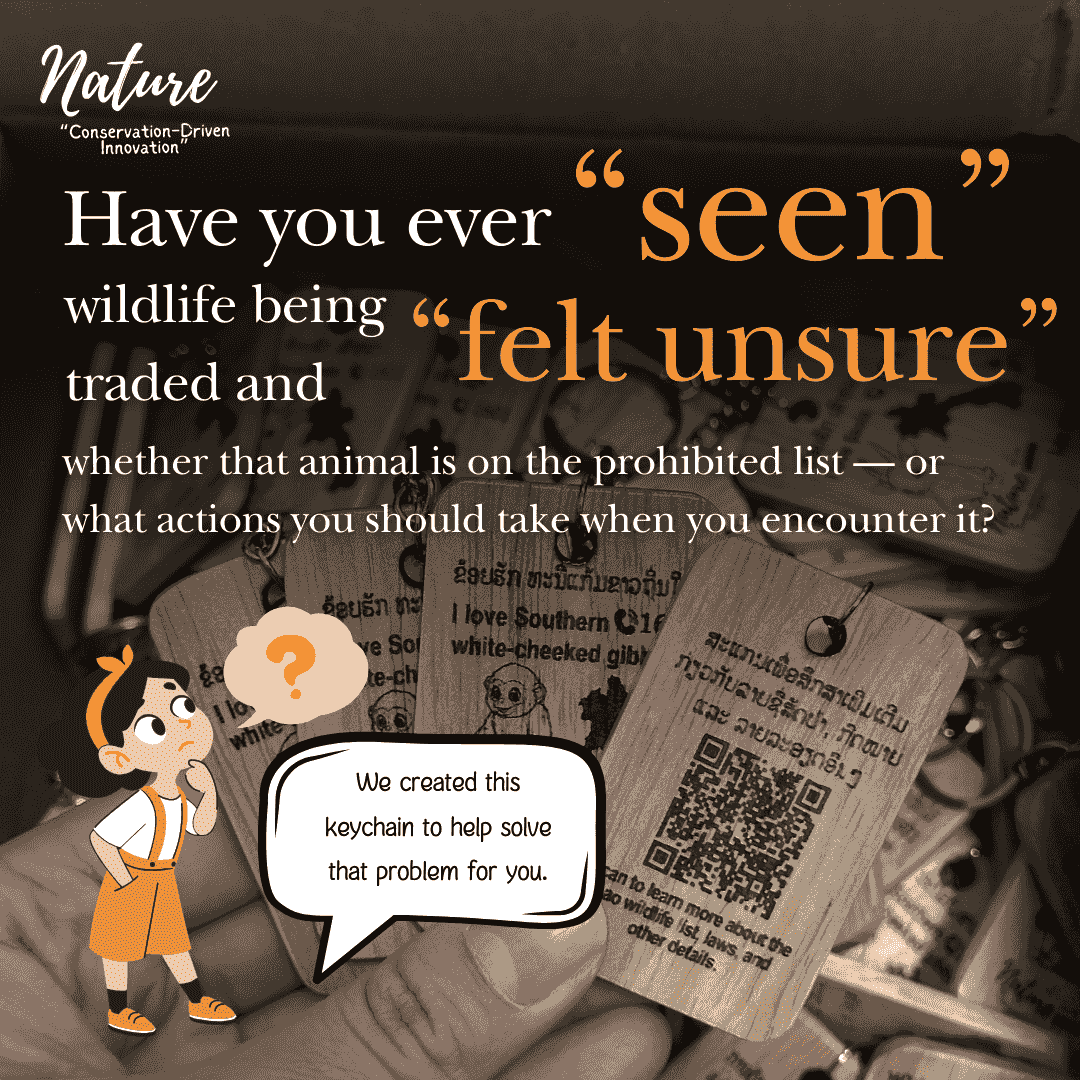
What if a keychain could open a whole world of information?
Each keychain highlights one of Laos’ Red List wildlife species and displays the phone number to report illegal wildlife trade on the front. It is paired with a QR code that connects you to valuable resources in both Lao and English — including a list of protected species in Laos, easy-to-understand laws that safeguard them, practical guidance on what to do if you encounter illegal wildlife trade, explanations of why wildlife conservation matters, and a special story about the pangolin.
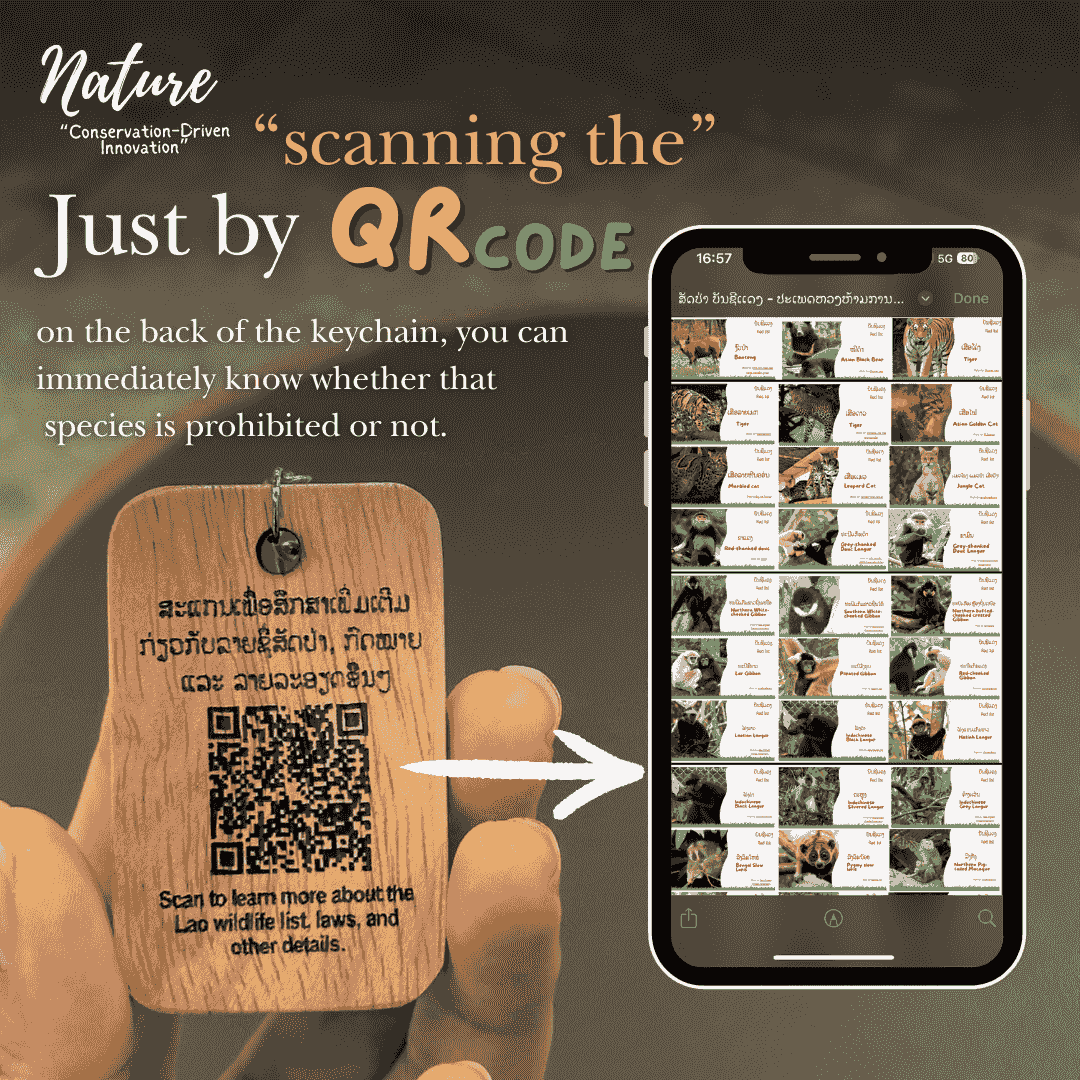
What if caring for wildlife didn’t require reading long reports or complex laws to understand?
Most people don’t read long reports or legal documents — but with a creative approach, everyone can become curious to learn more and easily access information. A small keychain, carried everywhere, turns awareness into action. With just a simple scan, it shares stories about wildlife, easy-to-understand laws that protect them, the pangolin’s journey, and ways to report illegal trade. Suddenly, learning feels effortless, and caring becomes second nature.

What tool can make Wildlife Conservation more tangible?
A small keychain — something people can touch, hold, and carry with them every day. People use keychains not just for their keys or bags, but also on wallets, backpacks, water bottles, and pencil cases. This everyday object becomes a constant, personal reminder of the importance of wildlife and conservation. By carrying it everywhere, the keychain turns abstract ideas into something real and meaningful, sparking curiosity, learning, and action every time it’s seen or touched.
At NaturePreneur, we try our best to avoid using materials made from fossil fuels or non-biodegradable sources for our keychains. Instead, we focus on transforming renewable, biodegradable resources that are abundant in our country, such as bamboo and retired rubber trees — trees that have reached the end of their latex-producing life that some communities would otherwise burn or discard.
Ten percent of our profits go directly toward tackling illegal wildlife trade through education and awareness. Another ten percent supports our research on Forest-based value chains, including helping communities manage bamboo in their area to prevent potential invasiveness, replanting rubber on existing land and open land without clearing additional forest, and promoting agroforestry practices to support sustainable livelihoods within Lao communities.
As a grassroots initiative, we try our best with the resources we have within our country to minimize environmental impact while creating meaningful tools for advocacy. We are transparent in what we do and committed to finding the most sustainable solutions that benefit both people and nature.
Our goal is to build a business that inspires young people, showing that poverty reduction and conservation can truly go hand in hand.
At NaturePreneur, we’re not just creating products — we’re creating purpose. We aim to protect nature, uplift communities, and prove that through innovation and ethical entrepreneurship, both people and the planet can thrive together.
Why not just go for ONLY bamboo to make the keychain?
Apart from bamboo, we chose rubber trees as one of our keychain materials for A REASON.
Rubber trees represent a global issue we can’t overlook — DEFORESTATION. This includes the clearing of land to plant them and the SLASH-AND-BURN practices that sometimes follow when trees reach the end of their latex-producing life. In some communities in Lao PDR, old rubber trees are burned instead of being reused, which worsens the climate crisis. By repurposing these old trees into keychains, we can help reduce the need for burning and give them a second life.
We can’t ignore that producing everyday essentials like food, rubber, rice, coffee, soy, cocoa, palm oil, and other commodities often comes at the cost of DEFORESTATION and/or SLASH-AND-BURN practices. Yet, we also can’t ignore poverty or the basic human right to have food on the table.
We don’t want to see all forests being cut down just to support our livelihoods — but we also don’t want to see people living in poverty or dying from malnutrition while forests are protected. Both people and nature deserve to thrive.
Instead of standing against communities and saying what they do is wrong, we must work with and support them to find win-win solutions. We believe rubber plantations can serve as a powerful example — if we can promote deforestation-free supply chains and integrate agroforestry approaches while supporting local livelihoods, we can create real change. Even small progress is better than ignoring or not trying at all.
We should be building alliances, not enemies, with the communities who cut down forests just to survive. The best solutions come from humility — by putting ourselves in the farmers’ shoes and understanding their struggles. Only then can agriculture and plantations truly become sustainable, ensuring both economic growth and environmental conservation.
We want to see national parks protected, wildlife thriving, and communities able to put food on the table to support themselves and their families. True development requires a systems-thinking approach — one that benefits all stakeholders and brings us closer to genuine, sustainable development.
Save the Pangolins Project (STP) - We are using keychains as a tool to raise awareness and advocate against illegal wildlife trade in Lao PDR.
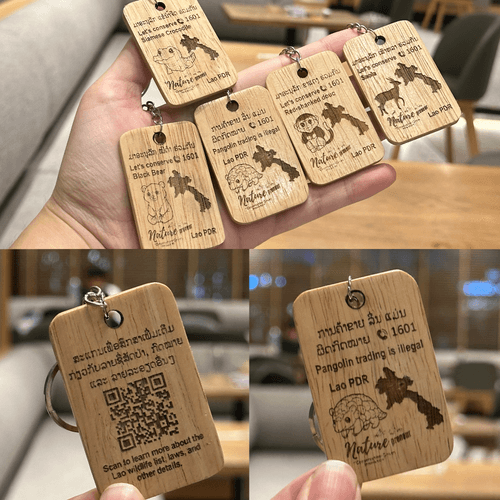

NaturePreneur keychain
$2.00
keychain products feature a QR code that instantly links buyers to essential Lao conservation law, storytelling and wildlife educationQuantityComing soonThe Conservation & Entrepreneurship Board Game
This innovative board game, similar to Monopoly but with unique rules and a conservation focus, is designed for all ages. Players learn to escape poverty through green entrepreneurship and investment. It educates players on critical topics including Lao environmental laws, reserved forest decrees, and protected wildlife species, empowering them to become informed local leaders.





